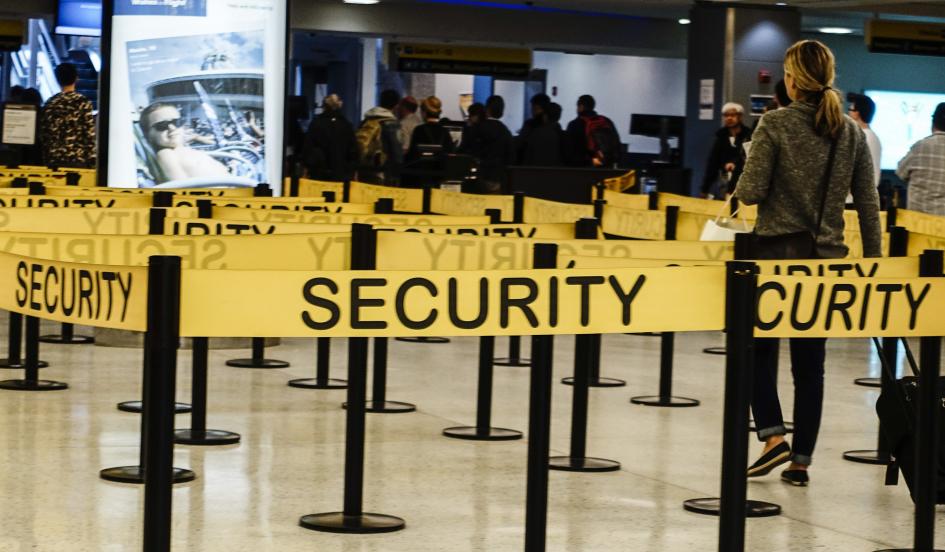A Matter of Personal Responsibility
Main Article Content
Abstract
How much screening is too much screening – and how much is too little?
With the recent outbreak of the Ebola in West Africa – where the virulent virus first ravaged Guinea, and is now also leaving its mark on Liberia and Sierra Leone – we are universally experiencing the worst Ebola epidemic to date. In an effort to reduce and contain the spread of this fatal virus, the World Health Organization (WHO) strongly recommended that the governments in these three grief-stricken countries mandate airport screening for all passengers entering and leaving the country for fever and other Ebola-like symptoms.[1]
Identifying infected people – though they may be in the 1-21 day incubation period – before they are able to unknowingly spread it to others through bodily fluids has become a top public health priority in the past few weeks, which has been escalated recently as the number of cases has grown exponentially. With the vast majority of instances of the disease and deaths occurring in West Africa, and with the presence of an Ebola patient now in the United States, special attention must be given to the ease with which this agent can spread via international travel.
As of October 2nd, the Centers for Disease Control (CDC), World Health Organization (WHO), and the respective Ministries of Health in Guinea, Liberia, and Sierra Leone, have listed the total case count at 7,157; the total death count at 3,330; and the total number of laboratory-confirmed cases at 3,953.[2] These are numbers reflective of a catastrophic disease plaguing Western Africa; they also highlight what could follow elsewhere if we fail to act promptly and judiciously. We must be prudent about making a dual effort to alleviate the symptoms and cure those who are infected and ill, as well as dedicating a more organized effort towards containing and preventing the spread of the virus.
In light of this epidemic, though I am aware of the frustration passengers may experience when their freedom of privacy is compromised, I propose that an extra, more intrusive standard of screening be used. Considering how contagious and lethal the Ebola virus is, in addition to the current procedural manner of screening at-risk passengers to determine whether or not passengers are febrile, I strongly propose that airport screening personnel take and analyze saliva swabs from these passengers at the time they pass through the screening process, as a more reliable, valid, specific, and sensitive diagnostic screening measure – rather than simply relying on unverified, self-proclaimed declarations about possible contact with diagnosed patients and travel through afflicted areas.
While an elevated temperature could be a reliable, valid and sensitive indication of illness or infection, it is certainly unspecific. It’s a condition found in any number of illnesses and conditions, including for instance, the common cold. Adding data obtained from saliva swaps would make the procedure scientifically robust in a relatively non-intrusive way and in a short period of time, thus helping titrate suspected carriers, confirmed infected and others. Doing so will help contain the pathogen – before passengers present with symptoms – and prevent its spread, all while raising awareness of the pathology and stage of illness in the carrier and/or already ill passenger. This would, in turn, allow for more rapid treatment of an infected individual.
Obtaining more concrete and useful data than passenger responses – which are likely to be colored by various factors – could help determine whether a passenger is carrying the Ebola virus and showing Ebola-like symptoms, carrying the virus but not presenting with symptoms, not infected with Ebola but appearing to be sick and febrile, or neither infected nor unwell (i.e., true positives, false negatives, false positives, and true negatives).[3] Until we raise our standards for rapidly determining whether or not passengers are suffering from the Ebola disease or have recently been infected with the Ebola virus, certain personal liberties may have be relinquished. This epidemic has reached our shores and constitutes an emergency. As such, constitutional protections and civil rights, such as the right to privacy, equal protection, the right to refuse to make self-incriminating statements, and the right to be protected from searches without a warrant may have to be weighed and perhaps temporarily limited against the urgent need to prevent and control a potential global public health catastrophe.
References:
[1] http://time.com/3137031/who-ebola-exit-screenings/
[2] http://www.cdc.gov/vhf/ebola/outbreaks/2014-west-africa/index.html
[3] http://www.reuters.com/article/2014/10/03/us-health-ebola-screening-idUSKCN0HS09J20141003

